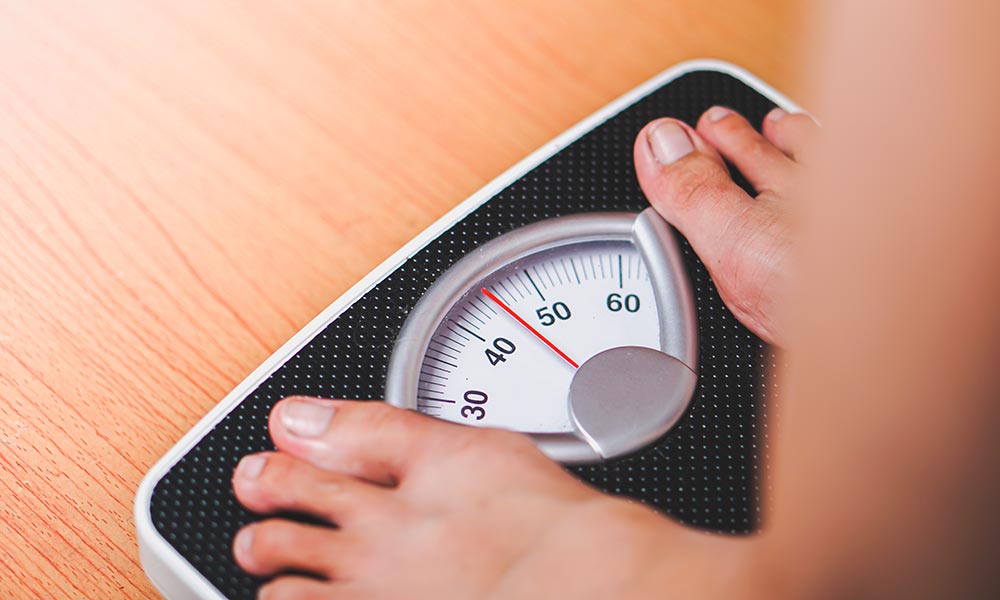In most cases, meloxicam does not typically lead to an increased risk of weight gain. However, some people may notice slight changes in weight stemming from factors such as water retention, inflammation, or reduced physical activity levels. [1]
Understanding how this medication affects the body can help you recognize what is normal, what is not, and when to consult a doctor.
Is Weight Gain a Possible Side Effect of Meloxicam?
Meloxicam does not typically cause weight gain; however, some users may experience fluid retention or bloating, which can result in mild weight changes.
While weight gain is not listed as a common side effect of meloxicam on Food and Drug Administration (FDA) labels or most medical resources, a small number of users report feeling bloated while taking the medication. [2]
These changes are usually due to water retention rather than true fat or muscle gain.
NSAIDs like meloxicam can sometimes lead to fluid retention by reducing renal prostaglandin synthesis, which impairs sodium and water excretion by the kidneys. [3]
This can make you feel heavier or appear slightly swollen, especially in the hands, feet, or lower legs.
It’s also possible that individuals taking meloxicam as a treatment option for chronic pain or arthritis may be less physically active due to their underlying condition, which can contribute to weight changes over time.
Additionally, systemic inflammation and elevated stress hormones—both common in people managing chronic pain—can also influence weight and fluid balance indirectly.
Here’s a closer look at possible contributors:
| Potential Cause | Is It Related to Meloxicam? | Notes |
| Fluid Retention | Possibly | NSAIDs can cause sodium retention |
| Increased Appetite | Unlikely | Not typically reported |
| Reduced Activity Due to Pain | Indirectly | May lead to weight changes |
| Hormonal Imbalance | No evidence | Not a known side effect |
Why Do Some People Gain Weight on NSAIDs?
Weight gain isn’t usually one of the first side effects people think of with NSAIDs, but in some cases, these medications can play a role in subtle weight changes. It’s not common, but it can happen, especially when other factors are involved.
1. Fluid retention linked to kidney function
NSAIDs can affect how well your kidneys filter fluids by slowing down blood flow to the area. When this happens, your body may start to retain extra water and sodium, which can lead to bloating, swelling, or a slight weight gain.[4]
2. Sodium retention
By interfering with prostaglandin production, NSAIDs may increase sodium levels in the body.[5] This retention can cause bloating and temporary weight gain that is not related to fat or muscle gain.
3. Inflammation and cortisol changes
Chronic inflammation—one of the main reasons people use NSAIDs—can sometimes trigger higher levels of cortisol, the body’s stress hormone.
When cortisol remains elevated, it can lead to increased fat storage, particularly around the abdomen. It may also slow down your metabolism in ways that increase the likelihood of weight gain.
4. Reduced mobility from underlying pain
People who take NSAIDs often manage pain that makes it harder to stay active. This may be related to conditions like osteoarthritis or rheumatoid arthritis. When you’re moving less, you’re also burning fewer calories, which, over time, can lead to slight changes in weight.
Common Side Effects of Meloxicam
Like other NSAIDs, meloxicam can cause a range of side effects.
Most people tolerate it well when taken as prescribed, but it’s important to be aware of possible reactions, especially if you’re taking the medication long term.
Below are some of the most common meloxicam side effects, grouped by category.
Gastrointestinal
Digestive issues are some of the most frequently reported side effects of meloxicam. [6]
These may include:
- Nausea
- Stomach pain or cramping
- Indigestion
- Constipation
- Ulcers or gastrointestinal bleeding (in more serious cases, especially with long-term use)
Taking meloxicam with some food can help reduce the risk of stomach-related problems.
Renal (Kidney Problems)
Meloxicam can affect kidney function, particularly in older adults or people with kidney disease. [7]. This is one of the more serious side effects that can happen.
Watch for:
- Water retention or swelling (edema), especially in the legs or feet
- Reduced kidney performance
- Difficulty urinating or changes in urine output
Other Possible Mild Effects
A few other side effects have been reported, though they’re generally mild and may fade as your body adjusts:
- Headache
- Dizziness or lightheadedness
- Skin rash or itching, which could mean an allergic reaction
Here’s a quick breakdown:
| Side Effect | Frequency | Severity | Notes |
| Nausea | Common | Mild | Often improves over time |
| Water retention | Rare | Moderate | May cause bloating or swelling |
| GI issues | Common | Varies | More likely without food intake |
If you experience any unusual or severe symptoms while taking meloxicam, contact your healthcare provider for medical attention right away. Some side effects can become serious if left unaddressed.
Weight Changes and Other NSAIDs
Meloxicam isn’t the only NSAID that can potentially influence weight; other medications in the same class, such as ibuprofen, naproxen, and celecoxib, may also carry similar risks.
However, weight-related complaints are generally rare and are more likely to be associated with fluid retention than with actual weight gain.
Ibuprofen, which is available over the counter, may occasionally cause mild fluid retention, especially when taken in high doses over an extended period of time.
Naproxen, available under various brand names, is more likely to be associated with bloating or digestive discomfort, which some people may confuse with weight gain.
Celecoxib, similar to meloxicam, is a COX-2 selective non-steroidal anti-inflammatory drug (NSAID), which means it’s designed to reduce inflammation while being gentler on the stomach.[8] Still, it can also contribute to water retention in rare cases.
Meloxicam’s COX-2 preference may offer fewer gastrointestinal side effects compared to some other NSAIDs, but it doesn’t eliminate the possibility of weight changes.
If you’re experiencing any unusual symptoms—whether while taking meloxicam or another NSAID—it’s always best to discuss them with your healthcare provider for relevant medical advice.
When to Reach Out to Your Doctor
If you experience unexpected weight gain while taking meloxicam, especially if accompanied by swelling in your legs, shortness of breath, or persistent fatigue, it’s best to consult a healthcare professional. These could be signs of fluid retention or strain on your kidneys or heart. [9]
It’s also worth checking in if any side effects persist or worsen.
Everyone’s body responds differently to medication, and things like your age, health history, or other prescriptions can affect how you feel.
Most importantly, don’t stop taking meloxicam without talking to your doctor first. Stopping suddenly may cause pain or inflammation to return. If you need to make a change, your provider can help you do it safely.
What to Do If You Notice Unwanted Side Effects
If you’re experiencing side effects while on meloxicam, there are a few steps you can take to manage your symptoms safely:
- Stay hydrated and consider reducing your sodium intake to help with bloating or water retention.
- Engage in light physical activity if possible, especially if reduced mobility or joint pain is contributing to weight changes.
- Keep a journal of any new or worsening symptoms, including the date and the severity of each occurrence.
- Speak with your doctor about changing your dosage or switching to a different medication if necessary, but only under their supervision.
Does Meloxicam Cause Weight Gain? Final Thoughts
Meloxicam isn’t known to cause weight gain directly; however, side effects such as fluid retention or reduced activity due to pain can sometimes lead to slight changes in weight.
If something feels off or you’re noticing changes you didn’t expect, it’s a good idea to check in with a healthcare provider.
Staying on top of your health starts with noticing what’s different, and you don’t have to figure it out on your own.













































